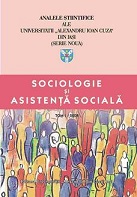PROBLEMS OF THE DEMOCRATIC CONSOLIDATION IN POST-COMMUNIST ROMANIA
PROBLEMS OF THE DEMOCRATIC CONSOLIDATION IN POST-COMMUNIST ROMANIA
Author(s): Ciprian IftimoaeiSubject(s): Social Sciences
Published by: Editura Universităţii »Alexandru Ioan Cuza« din Iaşi
Keywords: democracy; democratic consolidation; electoral process; civil society; media independence; independence of justice; governance
Summary/Abstract: If, regarding the fall of communism and the start of transition towards democracy of the Eastern and Central European countries we can talk about a common starting point, it is more difficult both methodologically and empirically to identify the time when the process of democratic consolidation itself begins. The fact that the revolutions of 1989 mark the start of the democratic transition tells us little about how the young East-Central European democracies would evolve towards democratic consolidation. The implosion of communism in Europe was due first of all to the disastrous social and economic consequences of the way the communist regimes operated and, secondly, to the fact that these countries were “helped” by a multitude of external factors. The nature of the political regimes before the collapse of communism, the way the transition from a political system to another was made, the level of social-economic development, the democratic traditions before the installation of communism in the Eastern-Central European area, the culture and the state of mind of the population will all constitute essential coordinates for unraveling the way the post-communist countries have evolved. I shall analyze the process of democratic consolidation in post-communist Romania, using the data supplied by the Nations in Transit reports elaborated by Freedom House, presented in a comparative manner for five postcommunist countries: Poland, the Czech Republic, Hungary, Bulgaria and Romania.
- Issue Year: 6/2013
- Issue No: 2
- Page Range: 5-30
- Page Count: 26
- Language: English

